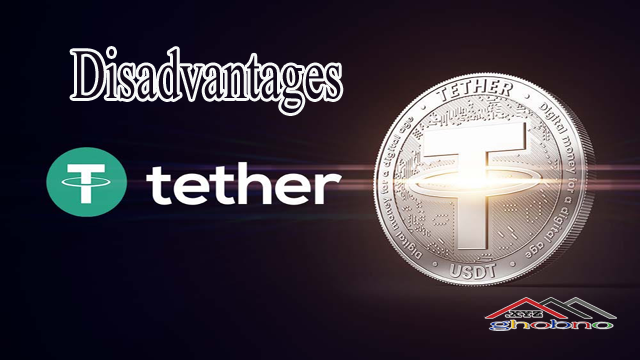Disadvantages of Tether
1. Transparency Issues: One of the major concerns surrounding Tether is its lack of transparency. The company behind Tether has faced allegations of not maintaining proper reserves to back the circulating USDT tokens. This has raised doubts about Tether’s claim that each token is backed by an equivalent amount of USD.
2. Centralization: Another disadvantage of Tether is its centralized nature. Tether Ltd. controls the issuance and management of USDT, which goes against the decentralized principles that cryptocurrencies aim to achieve. This centralization puts the stability and reliability of Tether at the mercy of a single entity.
3. Counterparty Risk: Tether users are exposed to counterparty risk as they rely on Tether Ltd. to maintain the value of USDT. If the company faces financial difficulties or fails to honor its obligations, the value of USDT could be significantly affected, posing a risk to investors and traders.
Potential Risks
1. Volatility Risk: Although Tether intends to provide stability by pegging its value to the US dollar, there is still a risk of price fluctuations. If Tether fails to maintain its peg, the value of USDT may deviate from the intended 1:1 ratio, exposing users to potential losses.
2. Liquidity Risk: The liquidity of Tether can also be a potential risk. In the event of a sudden market downturn or panic selling, Tether’s ability to maintain its value and provide liquidity might be tested. Insufficient liquidity could lead to difficulties in redeeming USDT for USD or other assets.
Conclusion
While Tether offers some advantages, it is essential to consider the potential risks and disadvantages associated with its use. Transparency issues, centralization, counterparty risk, regulatory concerns, and the availability of alternatives are factors that users should carefully evaluate when considering Tether as a stablecoin option.
Frequently Asked Questions
- Q: Is Tether a safe investment?A: Tether carries its own set of risks due to transparency issues, centralization, and regulatory concerns. It’s necessary to thoroughly assess these risks and consult with a financial advisor before considering it as an investment option.
- Q: Can Tether lose its peg to the US dollar?A: Yes, Tether may experience deviations from its intended 1:1 peg to the US dollar due to market factors, lack of adequate reserves, or regulatory actions.
- Q: Are there any alternatives to Tether?A: Yes, there are several stablecoins available in the market such as USD Coin (USDC), Dai, and TrueUSD that offer alternatives with improved transparency, decentralization, and regulatory compliance.
- Q: How can I mitigate risks associated with Tether?A: Diversifying your stablecoin holdings, conducting thorough research on alternative stablecoins, and staying updated with regulatory developments can help mitigate the risks associated with Tether.

